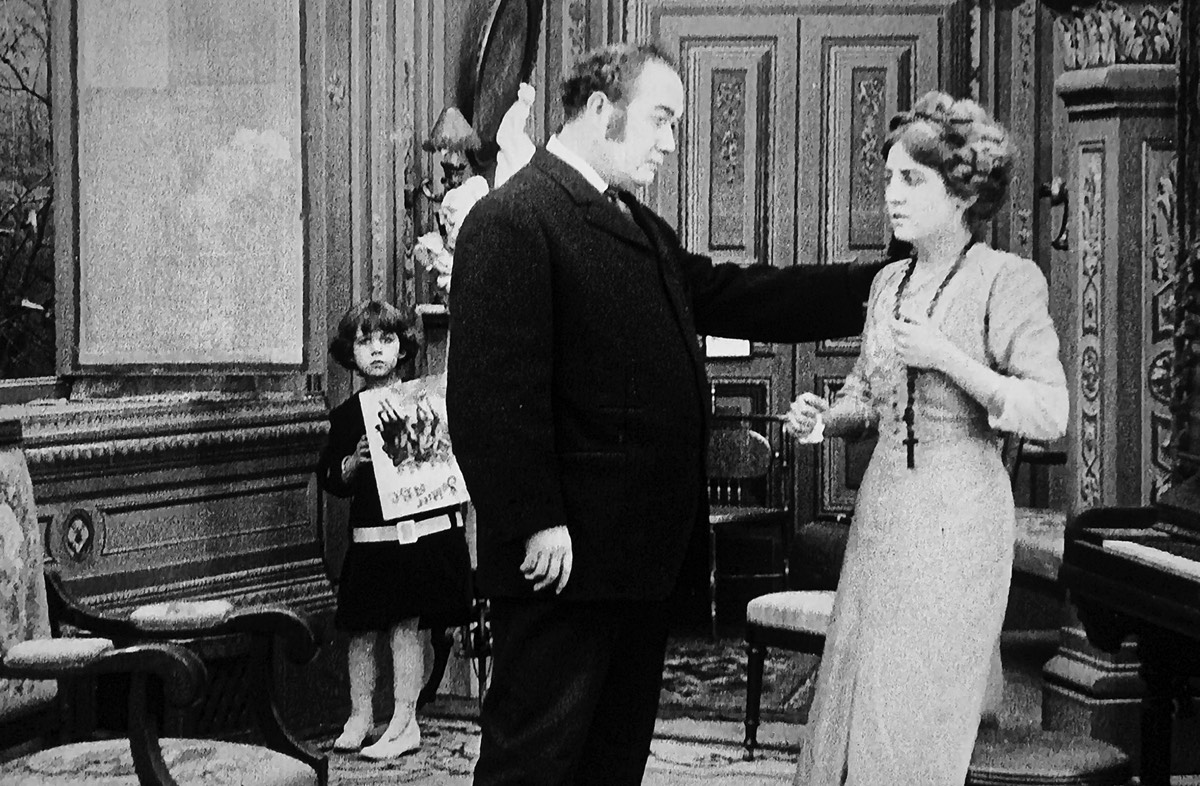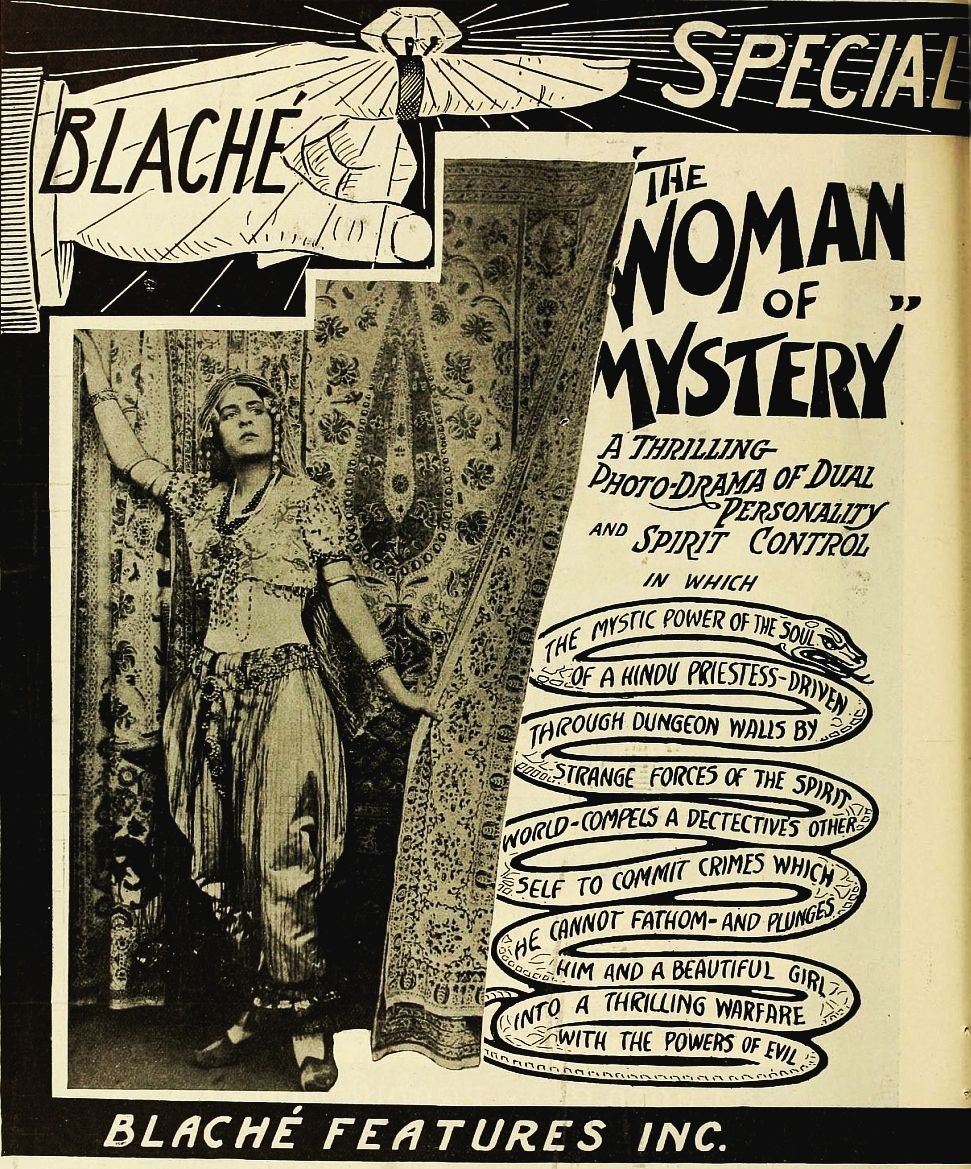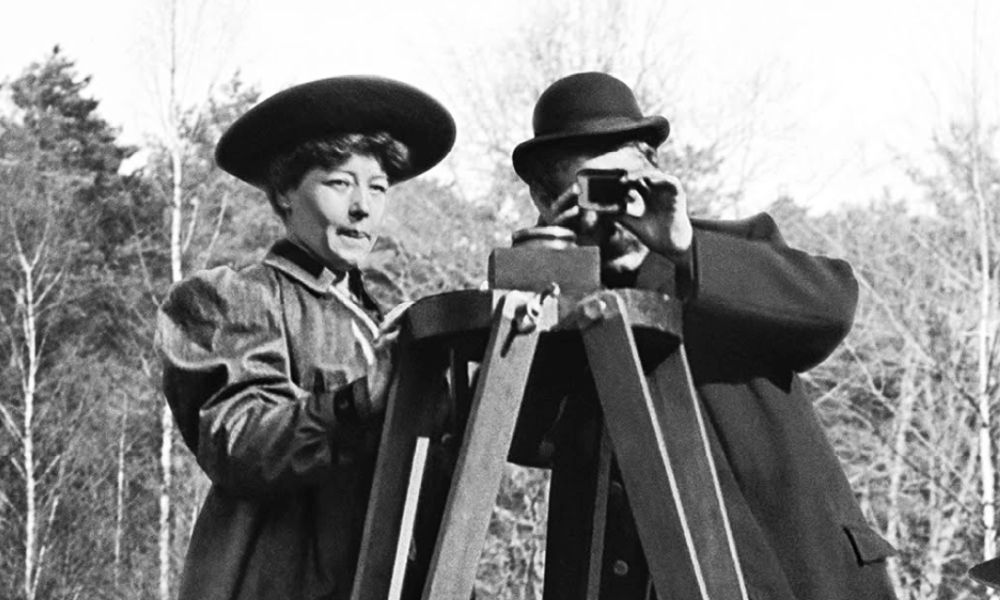"Alice Guy was the first person, or among the first, to make a fictional film. The story-film was quite possibly ‘‘invented’’ by her in 1896 when she made La Fée aux choux (The Cabbage Fairy)… Her films, characterized by innovation and novelty, explored all genres and successfully appealed to both French and American audiences. Today she is finally being recognized as a unique pioneer of the film industry." - Louise Heck-Rabi (International Dictionary of Films and Filmmakers, 2000)
Alice Guy-Blaché
Director / Producer / Screenwriter
(1873-1968) Born July 1, Saint-Mandé, Seine (now Val-de-Marne), France
(1873-1968) Born July 1, Saint-Mandé, Seine (now Val-de-Marne), France
Key Production Countries: USA, France
Key Genres: Short Film, Drama, Comedy, Romance, Romantic Comedy, Fantasy
Key Collaborators: Fraunie Fraunholz (Leading Actor), Marian Swayne (Leading Actress), Blanche Cornwall (Leading Actress), Darwin Karr (Leading Actor), Magda Foy (Leading Actress), Herbert Blaché (Producer)
Key Genres: Short Film, Drama, Comedy, Romance, Romantic Comedy, Fantasy
Key Collaborators: Fraunie Fraunholz (Leading Actor), Marian Swayne (Leading Actress), Blanche Cornwall (Leading Actress), Darwin Karr (Leading Actor), Magda Foy (Leading Actress), Herbert Blaché (Producer)
"By all accounts a remarkable woman, she was head of production for the Gaumont company from 1896 to 1907, directing and writing at least 400 shorts, including some which experimented with sound. After marrying Herbert Blaché in 1907, she went with him to America as Alice Guy-Blaché. There, she continued her career as a director and businesswoman, running her own production company from 1910 to 1914 in studios which she designed herself." - The Movie Book, 1999
"Call yourself a cinephile and you’ve never heard of Alice Guy-Blaché? Don’t worry, most film-makers haven’t heard of her either. But we all should have done. In fact, there should be statues of her and cinemas named after her. At the very least, Guy-Blaché’s name belongs in chapter one of cinema history, because she was the first female film director; indeed, for a good decade she was the only female film director. Guy-Blaché was in the room when the Lumière brothers held the first ever cinema screening, in Paris in March 1895. By the following year, she was making her own films. And while the Lumières were still hung up on cinema as a technological spectacle – “Look! A train!” – Guy-Blaché immediately saw its potential for telling stories." - Steve Rose, (The Guardian, 2020)

Falling Leaves (1912)
"Alice Guy was Léon Gaumont's secretary when the company turned to film production in 1896 and Gaumont put her in charge of this new enterprise. She became the world's first woman director, directing over two hundred shorts and pioneering the early development of sound synchronisation." - The Illustrated Who's Who of the Cinema, 1983
"Alice Guy-Blaché was a trailblazing French director, producer, screenwriter, and the co-founder and artistic director of her own film studio, Solax. Between 1896 and 1906 she was one of the only female directors in the world and is responsible for helping create over a thousand films as either director, producer or writer. Sadly, she often goes unrecognised for her contribution to the industry and only 140 of her films remain today, many in fragments… While her technological feats paved the way for many filmmakers of today, it’s also her subject matter and approach to social issues that set Guy-Blaché apart. Her work, like Guy-Blaché herself, often had a subtle and satirical tone that allowed her to challenge the norms of the time, and she was keenly aware and critical of the politics of her society." - Caitlin Cronin (Australian Centre for the Moving Image, 2020)
"A pioneer director, Guy-Blaché lensed some notably atmospheric work for such a primitive period." - William R. Meyer (The Film Buff's Catalog, 1978)
"There is nothing connected with the staging of a motion picture that a woman cannot do as easily as a man" - Alice Guy-Blaché
Selected Filmography
{{row.titlelong}}


